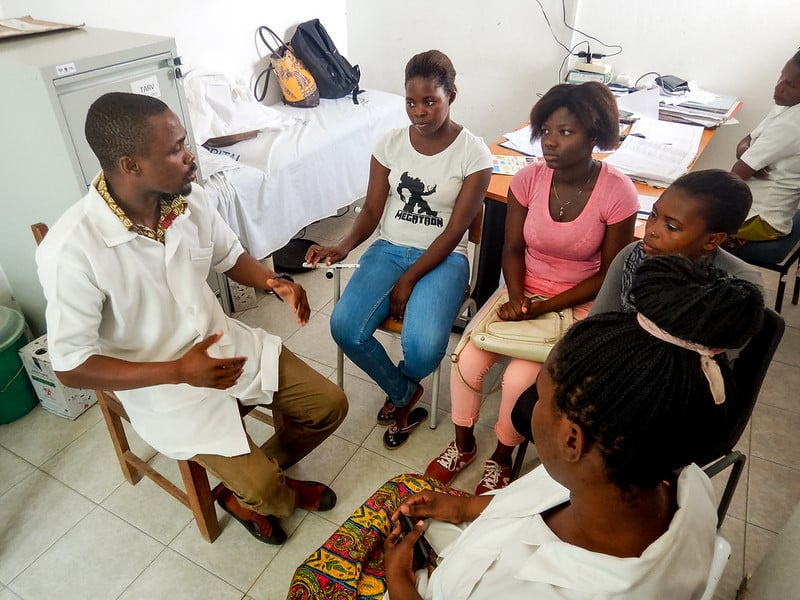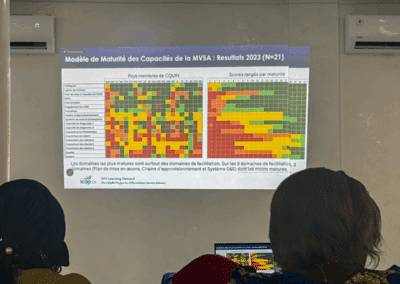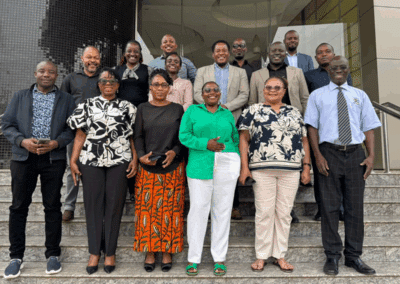Nkechi Okoro has been receiving HIV treatment at the Abuja National Hospital in Nigeria since 2013 and knows that recipient of care satisfaction is multifaceted. “For me, recipient of care satisfaction means getting quality care from providers without wasting my time,” she said, reflecting on her care over the past nine years. “It also means the hospital understands my needs and is flexible. For instance, if I’m not around and need someone else to pick up my medication, they should be able to make provisions without stressing me. It also means your results are out, let’s talk about it – paying attention to the details of my screening results and attending to me in good time.”
Lawrence Khonyongwa, executive director of the Malawi Association of People Living with HIV, MANET+, shares similar sentiments about recipient-of-care satisfaction. “For me, it means I have received 100 percent support and assistance from a competent provider with professionalism, that all the assistance received is of benefit to my health needs, and that I am happy coming out of the facility, knowing my needs have been met and I have been cared for.”
These and other experiences are why CQUIN, in collaboration with the International Treatment and Preparedness Coalition (ITPC), has co-created a toolkit to help countries in the CQUIN network assess recipient of care satisfaction with differentiated service delivery (DSD). “Several research studies show the link between recipient of care satisfaction and HIV treatment adherence, which is a critical pre-requisite to improving treatment outcomes,” said Gillian Dougherty, MPH, BSN, ICAP’s Quality Improvement advisor and co-lead of the CQUIN Quality Management Community of Practice. “Through our interactions with network member countries over time, countries identified gaps in their ability to define, measure, and improve the satisfaction of people receiving HIV services. Several meetings have also brought issues of provider treatment at facilities to the forefront. The toolkit is our response to the demands by network member countries,” she added.
The toolkit was co-created with input from three of CQUIN’s communities of practice – DSD Quality Management, Differentiated Monitoring & Evaluation, and the Community Advocacy Network. It includes information about defining and measuring satisfaction with health services, the advantages and disadvantages of different approaches and tools, and a wealth of case studies and examples that countries can use to design contextually appropriate evaluations of recipient of care satisfaction. It also emphasizes the importance of using these data to continuously improve satisfaction scores.
The toolkit describes diverse approaches available for assessing recipient of care satisfaction, including community-led monitoring. “It is important for us that ministries of health understand CLM as a complementary approach to other monitoring systems in place to improve health services,” said Krista Lauer, ITPC citizen science lead. “It is a tool that may unearth data that will usually not arise from facility-led quality improvement initiatives because CLM data collectors come from affected communities themselves. In this way, CLM collects insights directly from recipients of care – data which helps to identify underlying issues at the individual and system level and contributes to the solutions required to fix them.”
Prior to the official launch of the toolkit, which is currently available on the CQUIN website, the CQUIN Quality Management Community of Practice hosted two webinars discussing satisfaction assessment within the different settings and how to center recipient of care needs.

Ms. Nkechi Okoro at the differentiated testing along the HIV cascade meeting in Nairobi, Kenya
For Ms. Okoro, if the toolkit helps improve service delivery for people living with HIV, especially people from low socio-economic backgrounds, it will be a step in the right direction. “We have experiences where we’ve had to fight for services that should be freely available to recipients of care due to government policies, but some hospitals won’t educate you on these services. Why do we always have to fight for them? Satisfaction also means providing services allotted for me, whether I am aware of the service or not. If this toolkit can help measure services received in facilities in depth, it will help.”






